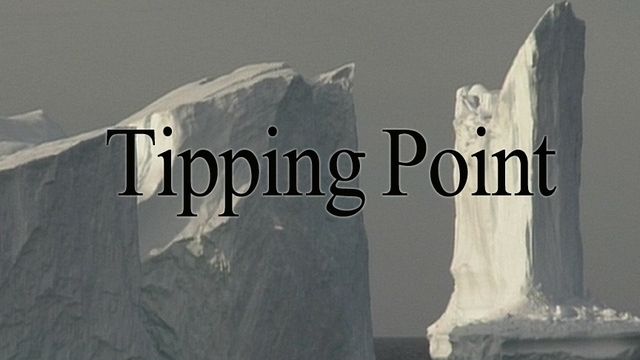Tipping Point
Our warming earth is most dramatically revealed in this modern day journey through the North West Passage. A revealing and worrying documentary from the Four Corners team.
 Setting out on a Summer afternoon from Dartmouth in Canada, the icebreaker Louis St Laurent sets sail for the Arctic Circle and the fabled North-West Passage. The bleak snowy islands and frozen waters of the Passage have proved fatal to hundreds of explorers and sailors, but the Arctic is changing. Our warming earth is most dramatically revealed in this modern day journey through the North West Passage. A revealing and worrying documentary from the Four Corners team.
Setting out on a Summer afternoon from Dartmouth in Canada, the icebreaker Louis St Laurent sets sail for the Arctic Circle and the fabled North-West Passage. The bleak snowy islands and frozen waters of the Passage have proved fatal to hundreds of explorers and sailors, but the Arctic is changing. Our warming earth is most dramatically revealed in this modern day journey through the North West Passage. A revealing and worrying documentary from the Four Corners team.
As the Louis travels its unique journey, powdery sea-ice dissolves easily in front of its red steel prow. Seals and polar bears rear their young on shrinking plates of ice, and arctic birds struggle to adapt as temperatures rise. Dr Robie MacDonald, an ocean expert, has been travelling this route on the Louis for years, researching the Arctic waters. 'Change is happening', he says. 'I've watched it happen as I've walked along this path'.
The Arctic Ice Sea, a plate of ice roughly the size of Europe, is disappearing. Scientists say that by 2013, there will be no sea-ice left in the Arctic, causing a tipping point for climate change throughout the world. 'The tipping point is where you've pushed a system into a state where, with no further pushing, it will rapidly change', explains Dr Ted Scambos. 'It seems as though the Arctic simply can't recover'.
Polar bears, who are at the top of the Arctic food chain, are feeling the heat. As the sea ice shrinks, so does their world. One bear drags an adult seal out of the ocean and onto the ice in his jaws. Such catches are growing rarer as seals struggle to rear their young without ice to build nests in. 'The polar bears have amazing adaptations to living on the ice', explains Marian Wilkinson. 'Their insulated paws that are furry and thick; their incredible ability to smell, they can smell ice seals miles away while they're under their ice lair'. Without ice they will be lost, their adaptations to a frozen world, worse than useless. 'Life in the Arctic is a fine balancing act'.
Lastly we travel to the forests of Alaska, a surprising victim of the Arctic's melting ice. Alaska's vast pine forests rest on a layer of solid permafrost, and, explains Marian Wilkinson, when the frost melts 'the ground literally gives way'. More and more trees are leaning over as the ground buckles. Locals call the phenomenon 'drunk trees'. Melting permafrost could soon be a worldwide disaster, as it locks in carbon dioxide, which is released as the ice melts. 'The amount of carbon which is sequestered in permafrost is at least the same as the amount of carbon in the atmosphere', says an expert in permafrost. 'Thawing permafrost will release this methane and it is like a bomb will explode'.
'The Arctic will export change to the rest of the world', warns Robie MacDonald. 'Melting sea ice will intensify the extreme weather caused by climate change, bringing violent storms and cyclones.' Very quickly the world's food and water supplies will begin to run short. 'To put it in context the Arctic Ocean has not been clear of ice for a couple of million years at least. This is extraordinary.'
More extraordinary still, Canadian Coastguards predict that it will not be long before the infamous Northwest Passage will be completely ice-free. And that's fuelling a new 'cold rush'. The business world is eyeing the vast oil and mineral reserves, until now, locked beneath the melting ice. 'Eventually things will become critical; this issue will become something that people are willing to go to war over.'
Reporter
Marian Wilkinson
FULL SYNOPSIS
Marian Wilkinson

